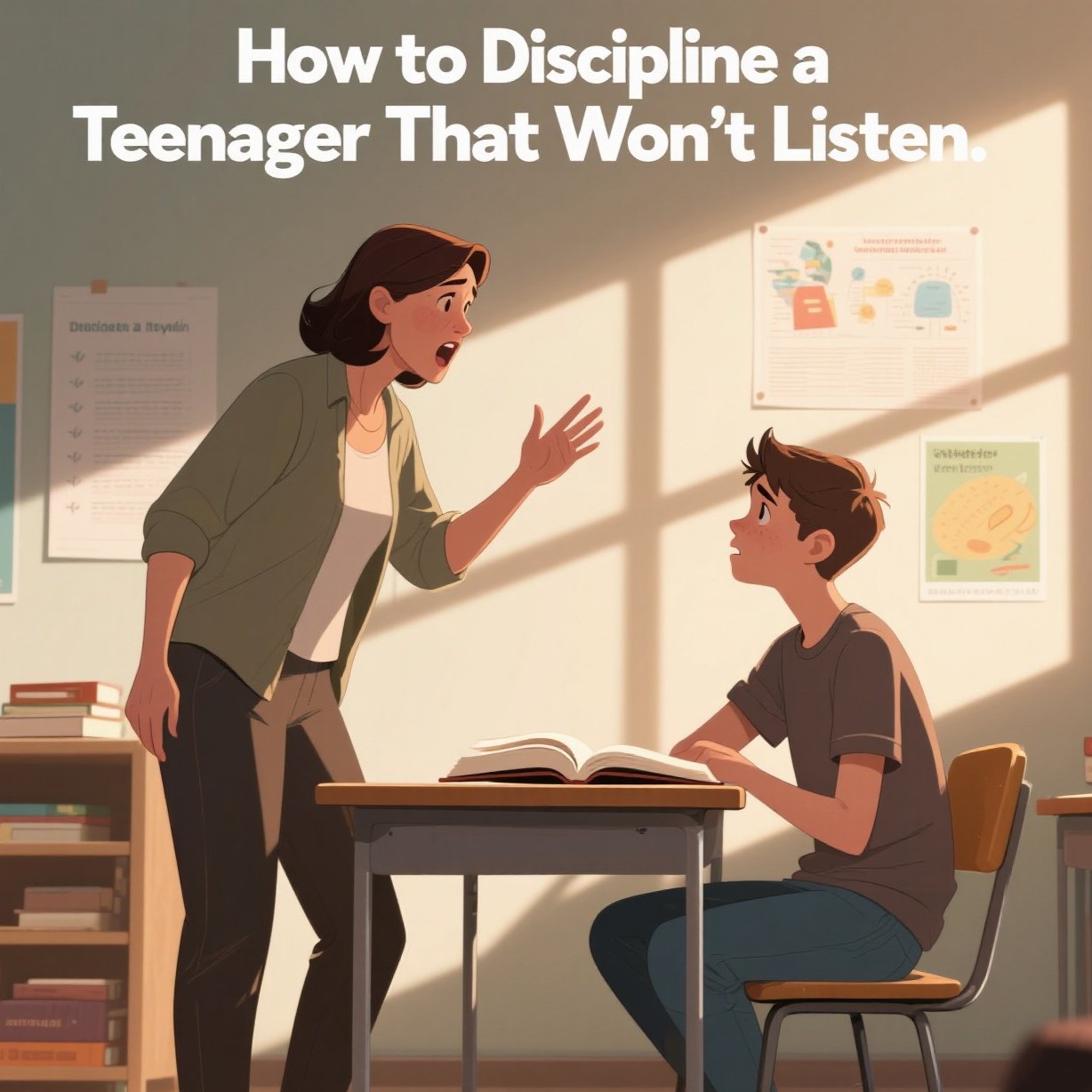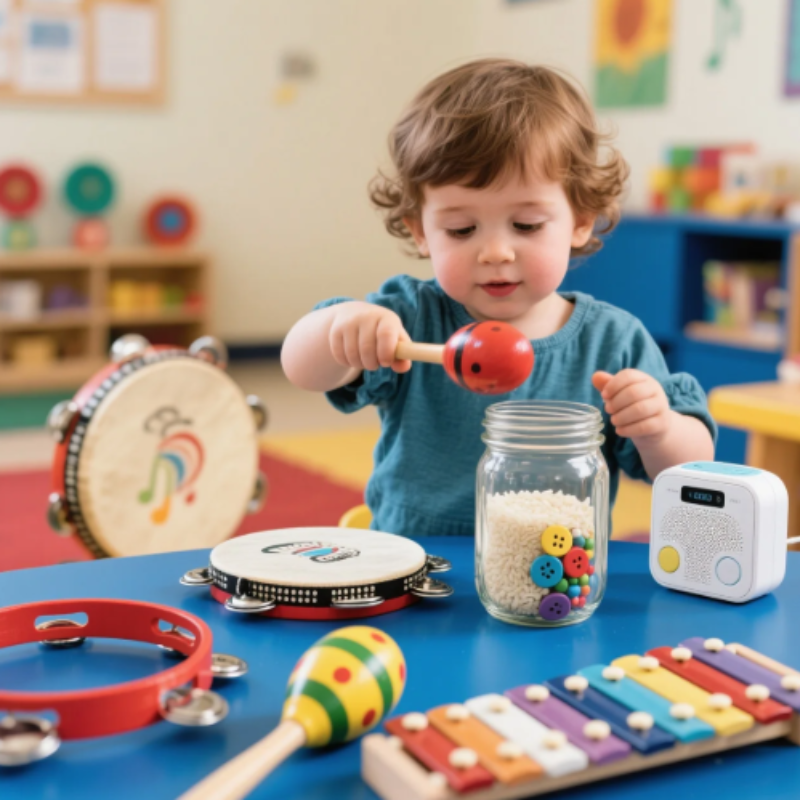Parenting a teenager can sometimes feel like speaking into the void—except the void huffs, rolls its eyes, and storms off mid-sentence. If you’ve ever asked yourself, “How do I discipline my teenager when they just won’t listen?”—you are not alone. Many parents face this season where every boundary is tested, every rule is debated, and every conversation seems to end with a slammed door.
But discipline isn’t about overpowering your child—it’s about teaching them to power themselves. At its heart, true discipline is not punishment but guidance, shaping your teenager into the adult they are slowly becoming.
🌪️ Why Teens Sometimes “Tune You Out”
Adolescence is a crucible—a time of fire and change. What looks like defiance is often biology and identity in motion:
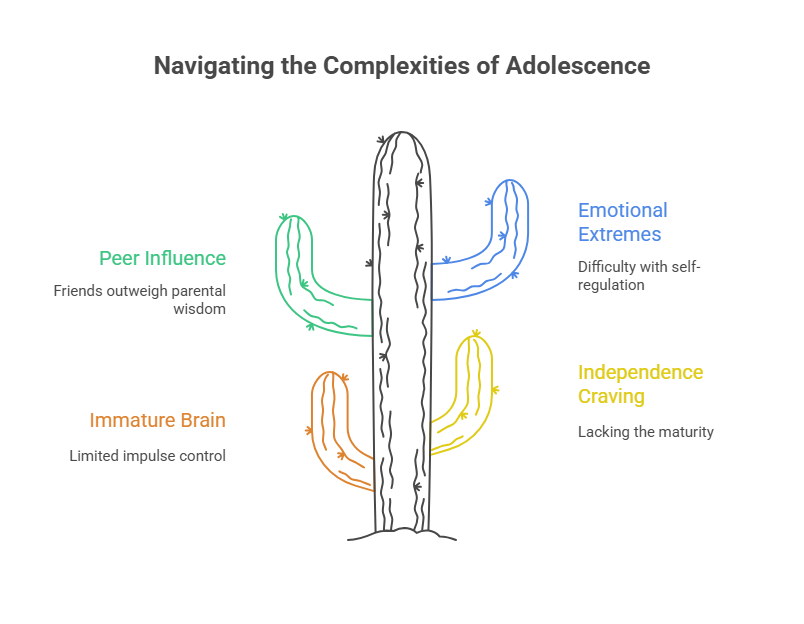
🧠 A brain still under construction. The prefrontal cortex, responsible for judgment and impulse control, won’t fully mature until their mid-20s.
❤️ A hunger for independence. They long for freedom but lack the full maturity to wield it wisely.
👥 A pull toward peers. Approval from friends can outweigh your wisdom, no matter how much they love you.
🔥 High emotions, low regulation. Anger, sadness, and joy all arrive in extremes, making reflection hard in the moment.
When your teen “tunes you out,” it’s rarely rejection—it’s often overwhelm. Understanding this allows discipline to become not a battle, but a bridge.
💡 7 Gentle but Firm Ways to Guide a Teen Who Won’t Listen
1. Stay Calm, Stay Firm 🧘♀️
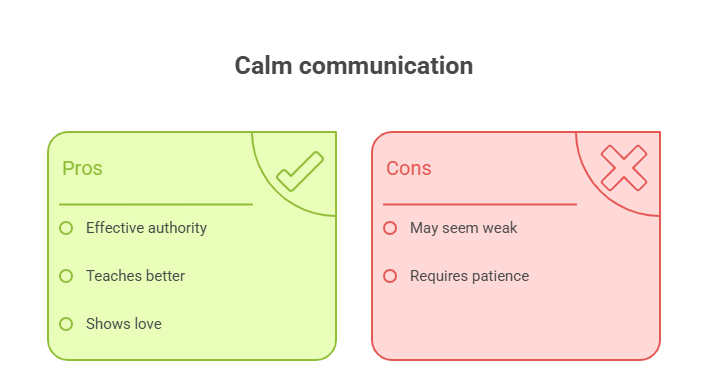
Your anger may silence them for the moment, but it rarely teaches. A steady voice communicates authority more powerfully than a raised one. When you remain calm, you remind them that love can be firm without being cruel.
2. Set Boundaries as Promises, Not Threats 🚧
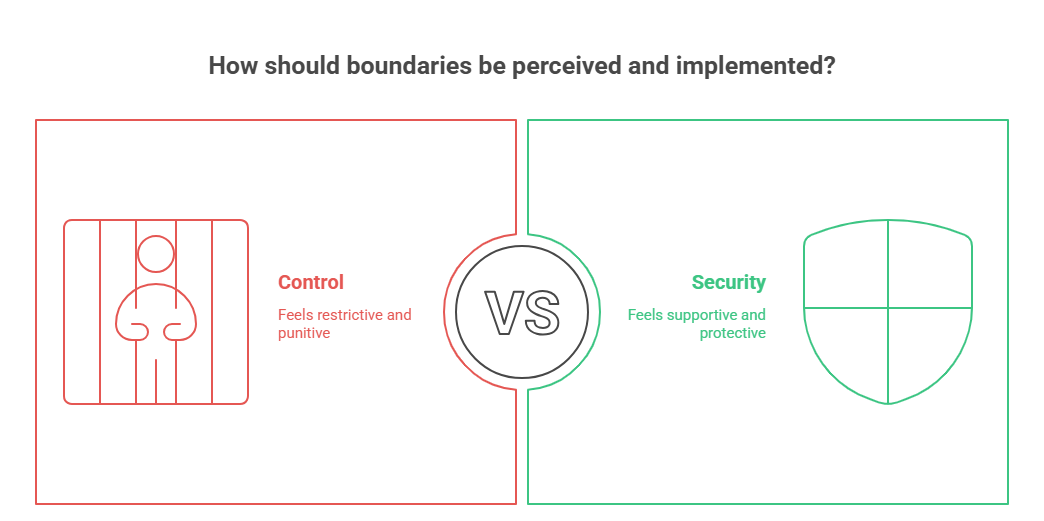
Rules are not prisons—they are promises of safety. State them clearly, without anger, and uphold them consistently. A boundary kept with love feels less like control and more like security.
3. Let Natural Consequences Do the Teaching 🌱
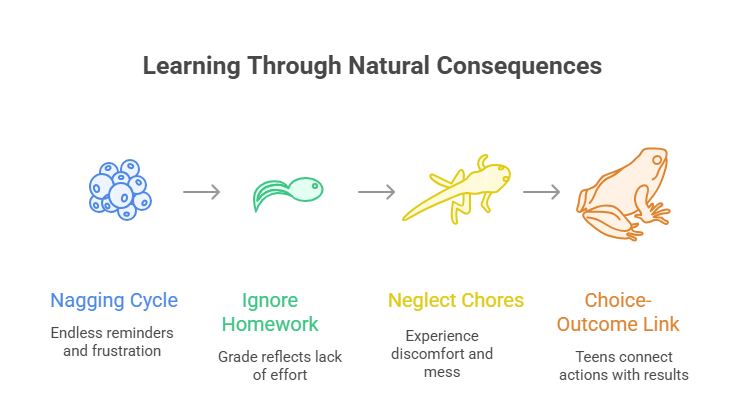
Sometimes the harshest teacher is life itself. If she ignores her homework, the grade will show it. If he neglects chores, he will feel the discomfort. Natural consequences remove the endless cycle of nagging and help teens link choices with outcomes.
4. Choose Which Hills Are Worth Climbing ⚖️
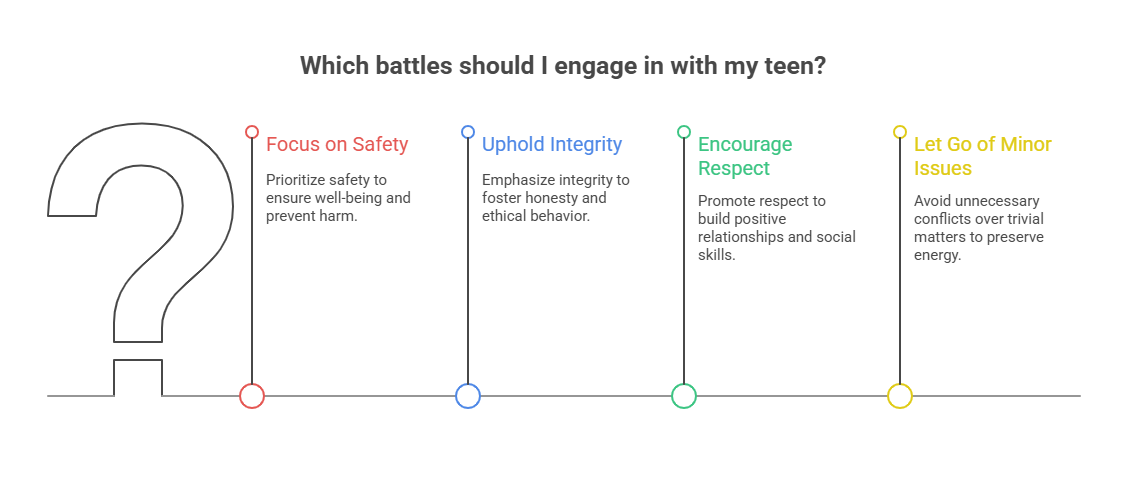
Not every battle deserves your energy. Save your strength for values that matter—safety, integrity, respect. The smaller things—the messy room, the questionable fashion choices—may not define their future, but your response to them might.
5. Give Choices, Not Commands 🦋
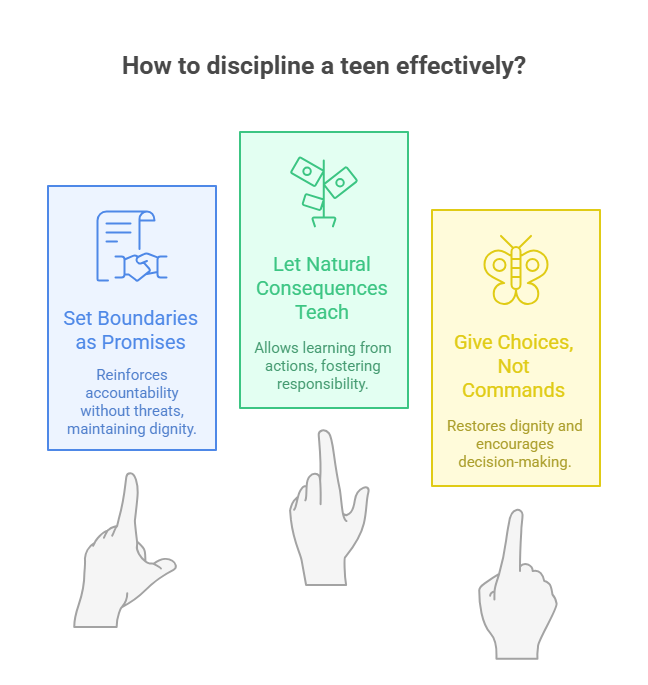
Discipline isn’t about cornering your child—it’s about helping them see that freedom and responsibility always go hand in hand. “You can be home by 9 PM, or lose weekend privileges.” Choices restore dignity while reinforcing accountability.
6. Be Relentlessly Consistent 🔑
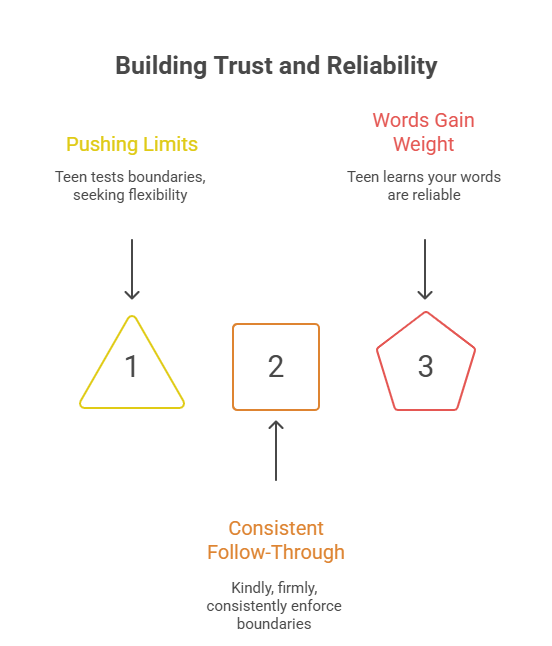
Your teen will push limits, hoping you’ll bend. When you follow through—kindly, firmly, consistently—you prove that your words have weight. And one day, they will mirror that reliability in their own lives.
7. Connect Before You Correct ❤️
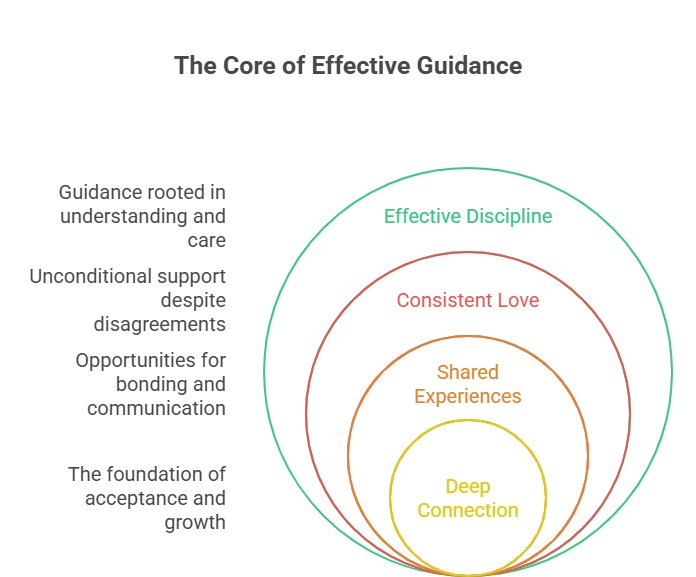
Rules mean little without relationship. A child who feels deeply known and loved is more likely to accept guidance. Discipline works best when it grows from connection: a shared meal, a car ride conversation, a simple, “I love you, even when we disagree.”
🌼 Discipline vs. Punishment
The two are not the same.
- Punishment seeks to make them suffer for mistakes.
- Discipline seeks to help them learn from mistakes.
The goal is not to win battles or crush rebellion—it is to teach your teenager how to regulate themselves, so that long after they leave your home, they will carry with them the wisdom of self-control, resilience, and integrity.
✨ Final Thoughts
Parenting a teenager who won’t listen can test every ounce of your patience, but each conflict is also a chance to model the very traits you hope to see in them—calmness, consistency, respect, and grace.
Think of every boundary, every calm response, every followed-through consequence as a brick you are laying in the foundation of their future character.
One day, long after the slammed doors and heavy sighs, your teen will remember less about the arguments and more about your steady presence—the parent who did not give up, even when it was hard. 💙


